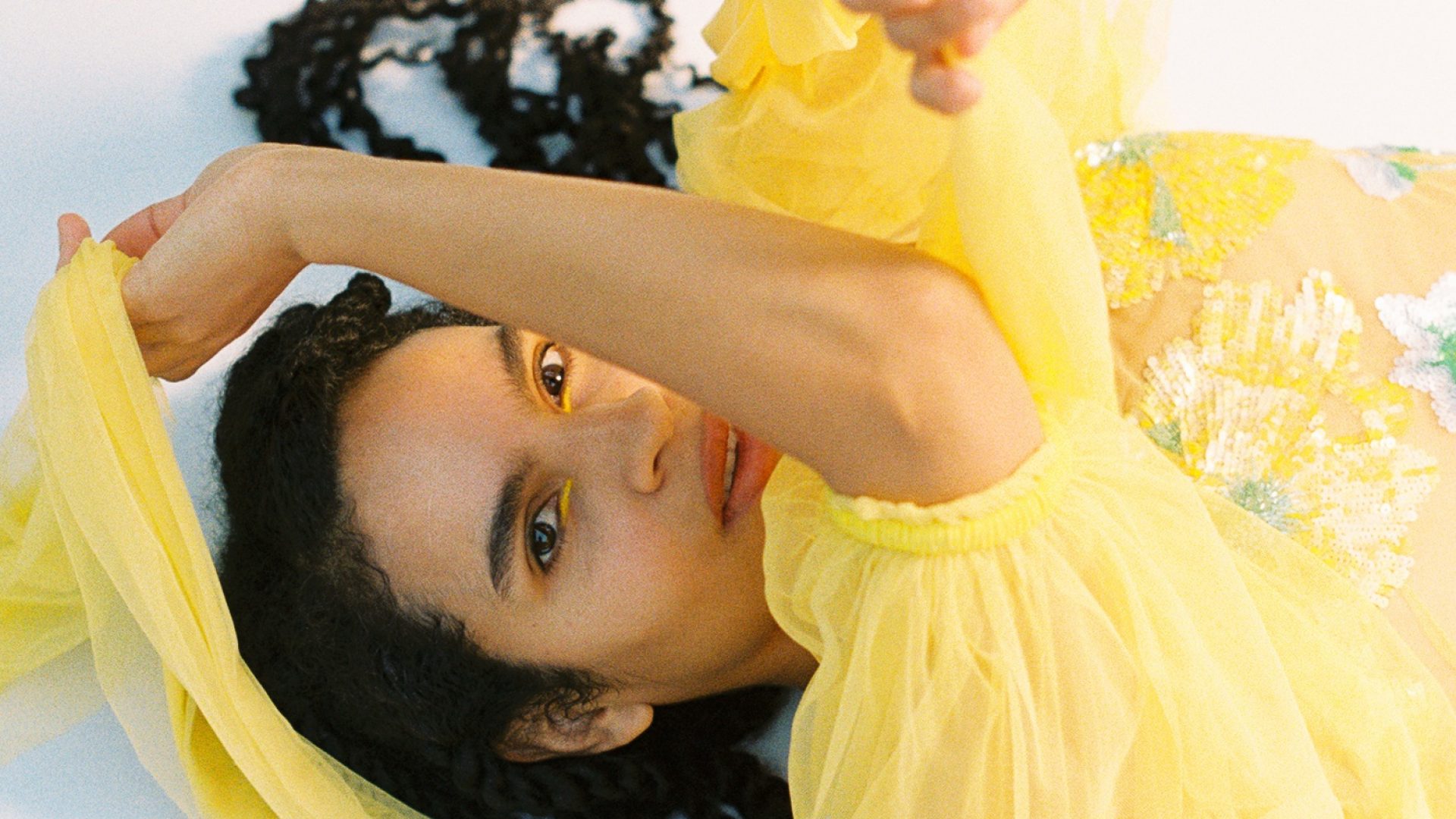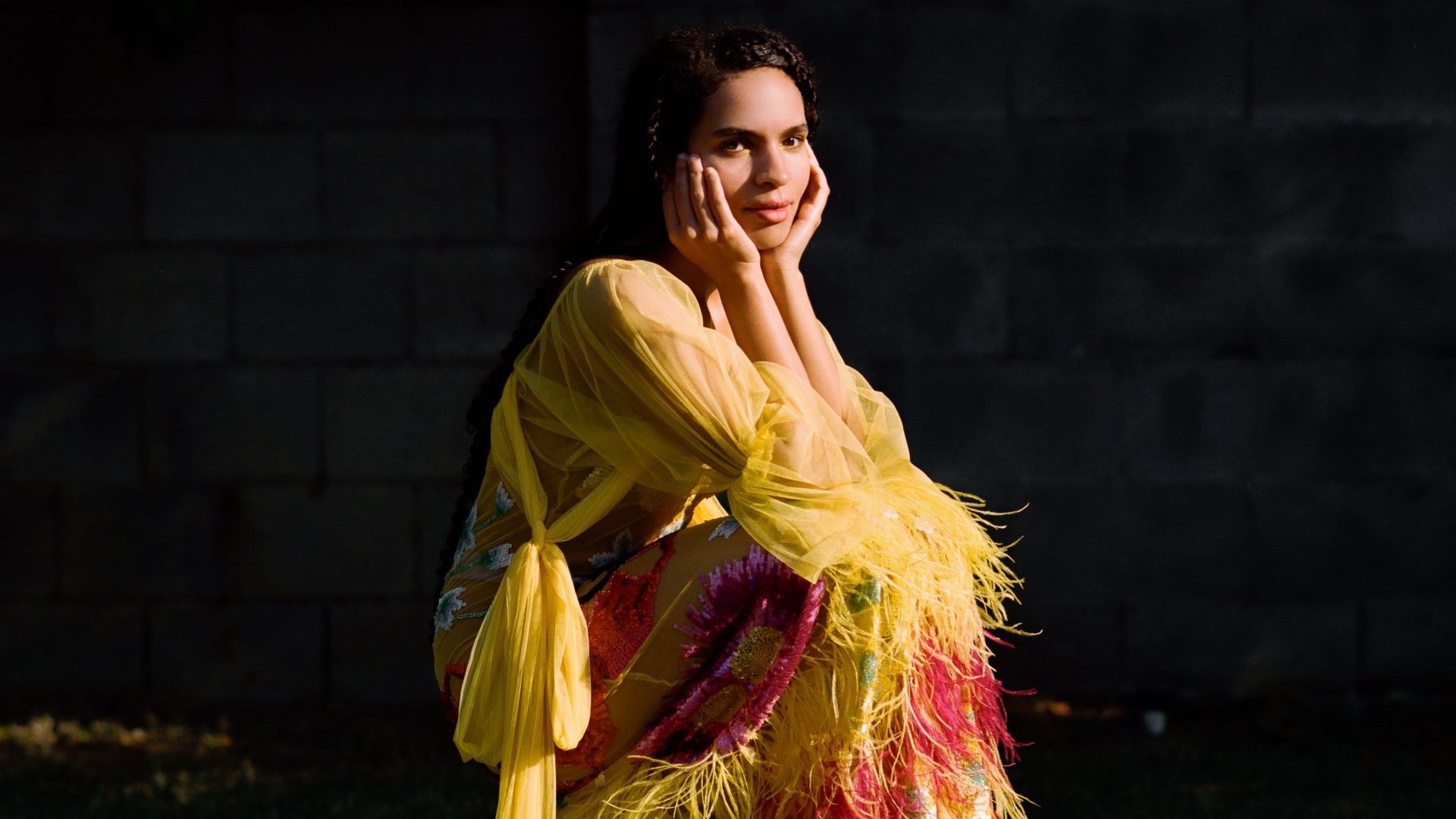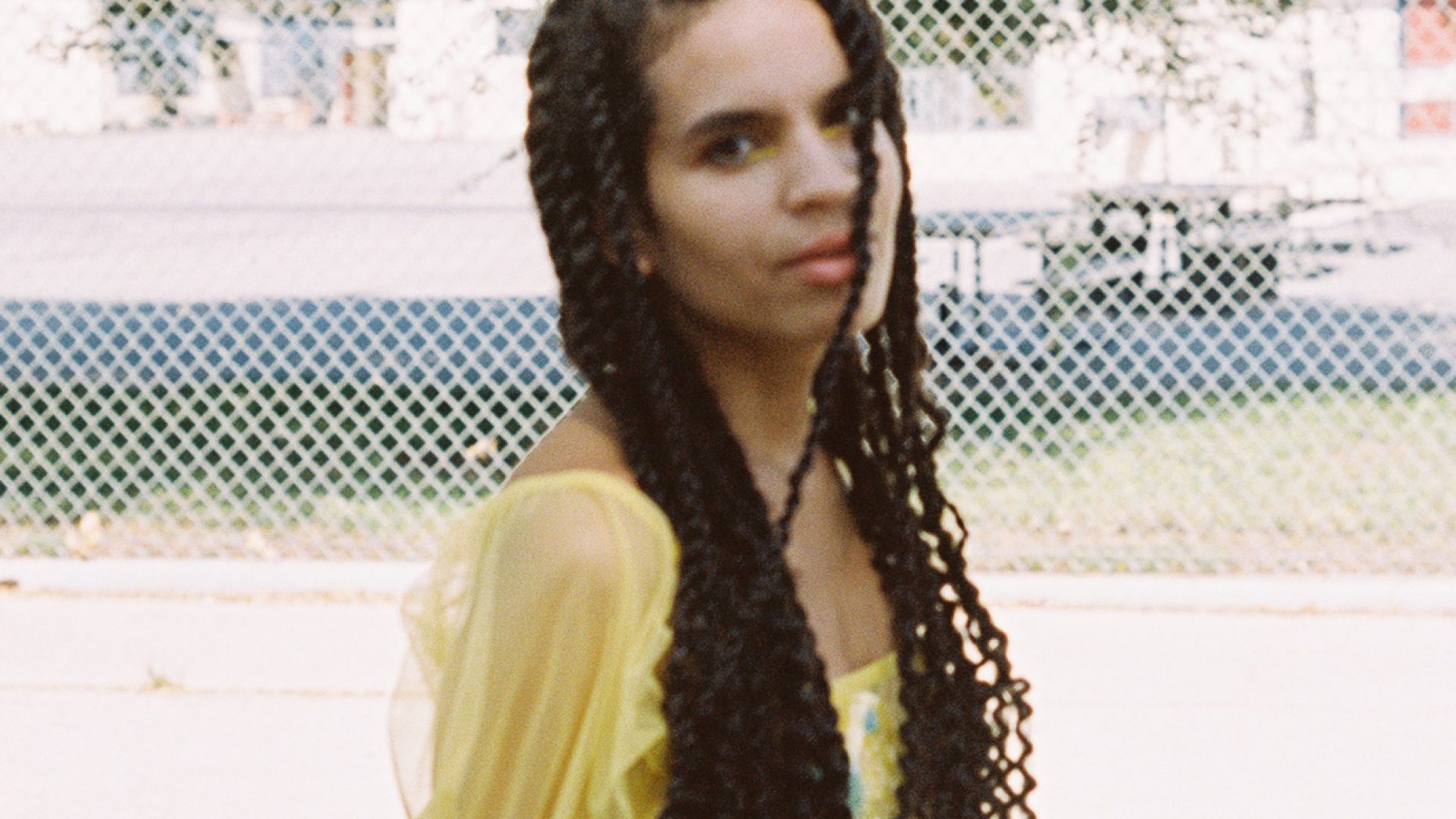
On the eve of Juneteenth, a day that represents freedom and liberation for Black folks, Zimbabwean-American artist Shungudzo is sharing new music from her forthcoming album, I’m not a mother, but I have children. In the new music video for the single “Already Free,” the singer is cocooned in saran wrap, a symbol of the societal limitations placed on her as a Black woman.
“They can put their shackles on me/They can beat me blind/They don’t know I’m already free I can see the light,” Shungudzo sings. She revealed to Essence Girls United that she wrote “Already Free” during a period of self-doubt “brought on by various elements of the system.”
“Both the system as a whole, and people in my life who either consciously or subconsciously served the system by placing themselves atop a hierarchy that they perceived me to be at the bottom of. People who took advantage of me,” she explained. “Around when I made this song, I realized that I let them take advantage of me. I allowed them to treat me poorly because I felt like I needed them, which means that I too believed in the very hierarchy that was holding me back. I realized that I couldn’t be truly free from the system’s control until I believed that the system could not control me. I had to free myself in my mind first in order to become free in anybody else’s mind.”
Ahead, check out the premiere of Shungudzo’s music video for “Already free,” as well as our exclusive chat with her about the inspiration behind her music, Juneteenth and the unnecessary restrictions placed on Black women.
On her decision to address race, power and societal stereotypes in her music:
Even though they’re so deeply intertwined, I think as a human first, and as an artist second. I’ve always found it impossible not to look around, and within myself, and not acknowledge what’s happening. And after I’ve acknowledged what’s happening, I ask myself what I’m gonna do about it. If the answer is, ‘nothing,’ I try not to sink into a never-ending cycle of complaint. All of the moments in my life in which I’ve found myself constantly complaining about something, or someone, but not doing anything about it have been the saddest.
On releasing “Already free” on Juneteenth eve:
‘Already free’ was the very first song I wrote, prior to even knowing I was making an album, and its spirit very much guided the intention of the rest of the songs. ‘Already free’ is both a protest and a celebration, because I think that protesting the system should go hand-in-hand with celebrating ourselves.
As we take time to acknowledge the inequities and injustices of this world, from past to present, we must also acknowledge how resilient, and beautiful, and capable we are. How powerful we are — as individuals and most especially when we come together.
I’ve had to do, and continue to do, so much work deprogramming myself to remember that I am not the problem in instances when I’m being discriminated against. There is nothing wrong with being Black or a woman or a member of any group that has been historically oppressed. The oppressors are the problem; not the oppressed.

Shungudzo.
On how she addresses societal limitation through her music:
We all have lenses that need changing. Some people have these lenses that they’ve been taught to view the world through that cause them to judge Black women’s words before we even speak to them. To assume our personalities before they even know us. To perceive us as angry when we speak with assuredness. To desire us as lovers, or teachers, or in need of teaching, when we’ve not expressed any mutual desire for these things.
You can oftentimes tell when someone is viewing you through a learned, one-dimensional lens when their reactions consistently do not match your intentions. Or when you have to either soften or harden yourself in order to feel safe or be heard correctly.
We shouldn’t have to soften ourselves for anyone unless we want to be soft; nor should we have to walk through life with a hardened shell in order to feel safe. We should be allowed to be as expressive and multi-dimensional as we really are, or want to be, so long as we’re not hurting anyone. In the making of this album, I tried not to censor my thoughts and feelings for other people’s comfort. I did so hoping that I’d inspire other people to both feel and express themselves openly.

Shungudzo.
On expectations about her upcoming album:
I hope the album shows someone out there that they’re heard, that it inspires someone else to listen, and that it motivates everyone who connects with it to feel. Feeling is not a weakness — it’s a superpower. I think that a lot of the world’s problems stem from a lack of empathy, which at its core is a fear of feeling one’s own feelings. If you don’t let yourself feel your own pain, you can’t empathize with someone else’s, nor can you truly understand when your actions or words are hurting them. Similarly, if you don’t allow yourself to feel your own joy, you can’t truly connect with other people’s happiness. Feeling, without resistance, is a huge first step towards healing. So often, it’s the resistance that causes pain, not the feeling. If this album makes people feel, I’ll be grateful.
Watch Shungudzo’s “Already free” video below.
Photo credit: Shore Fire Media